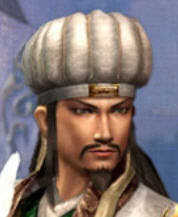
Earth provides enough to satisfy every man's need, but not every man's greed. ~Mohandas K. Gandhi
As reiterated in my earlier post, if you are to succeed in achieving financial intelligence, you must track your expenditures in detail. Once you have done so, this post will show you exactly how to categorize your expenses.
There are two main dimensions to your spending, namely necessity and desire. Understanding these two dimensions are of crucial importance, if you wish to cultivate thrifty habits and achieve financial independence.
Necessity
What are the bare necessities required by a person in this world? Personally, I believe that we have been afflicted by consumerism to a grave extent. We have lost sight of how little we really need to survive with contentment, here and now. Food and water, clothing, shelter and medicines: these are the bare necessities of life. In this modern world, is it really necessary to obtain more than these basic needs?
Desire
The Buddha once remarked:
‘Human desires are endless. It is like the thirst of a man who drinks salt water; he gets no satisfaction and his thirst is only increased. So it is a man who seeks to gratify his desires; he only gains increased dissatisfaction and his woes are multiplied.’
The very crux or essence of Financial Intelligence lies in the ability of a person to distinguish between these two very different needs: Something NECESSARY vs. Something DESIRABLE. To achieve financial independence, a person must cultivate the awareness of the difference between these two concepts.
Four Categories of Expenditure
Using the two dimensions of Necessity and Desire, we can classify all expenses into four major categories, as indicated in the diagram above. Let us look at each category in detail.
Quadrant 1: Necessary and Desirable
These are things that are both necessary and desirable. In other words, it’s something that you must and want to do! For instance, IT skills such as Excel may be invaluable for your career and personal development. Let assume that you are interested in enrolling for an Excel course and familiarity with this software is important for your career progress. The fees spent to enroll into this course, falls under Quadrant 1. You should not hesitate to spend money on Quadrant 1 items.
Quadrant 2: Necessary but not Desirable
Sometimes, there are expenses that are necessary but may not be desirable. Expenses such as medical check-ups or routine car maintenance may fall under this category. These are expenses that you do not like spending money on. However, it is important that you do so, as it concerns your well-being or will save you from spending more money later on (e.g. to car overhaul due to poor car maintenance). Often, failure to spend on Quadrant 2 items may result you having to spend more money on Quadrant 4 items, later on.
Quadrant 3: Not Necessary but Desirable
Aha! We have reached the type of expenses beloved by companies and marketers. These are expenses that are neither necessary nor required by us. Yet, through prolonged exposure to advertisements and campaigns, we are *brainwashed* into thinking that these are necessities. Often, items purchased in this category are overpriced and rarely used. For example, there are numerous exercise and massage machines costing over RM10K. I am sure a large majority of the people who purchase such machines grow quickly tired of them, after a few months. Are not such expenses, wasteful? Be very careful when deciding to spend on items in Quadrant 3. If you are discerning enough, Quadrant 3 offers ample opportunities for you to cut-down on your monthly expenditures and save money.
Quadrant 4: Not Necessary and not Desirable
These categories of expenditures are those expenses that cannot be avoided, once the needs arise. These consist of expenses such as car overhaul, fixing your leaky roof and taking heart medication. Yet, if you are wary enough, you can minimize such expenses before such a need arises (i.e. by spending on Quadrant 2 items). For example, if you send your car for routine maintenance, you may have avoided your car from breaking down. Further, if you keep a healthy lifestyle, it may not be necessary to spend money on heart medication, years later.
Quiz
Let’s have a quick quiz to see whether you understand the differences between these four quadrants. Look at each of the expenses below and place them into one of the quadrants.
1. A Master Grade (MG) Gundam model kit, worth RM150;
2. A bi-annual medical check up, costing RM800;
3. Annual overseas vacation trip with the whole family, RM15,000;
4. Purchases of self-improvement books, totalling RM1,000 annually – tax deductible;
5. Purchases of health supplements, amounting to RM2,000 per annum;
6. Beauty treatment and facials at a local spa, costing RM2,400 per annum;
7. Tuition and exam fees for a degree course at a local college, worth RM12,000 per annum;
8. A 40 inch Plasma TV, costing RM8,000;
9. Monthly Astro subscription, of RM1,200 per annum; and
10. Mobile phone bills of RM2,400 per annum.
Conclusion:
So, which items do you think falls under Quadrant(s) 1-4? Any opinions or comments are most welcome. As our needs and desires are different, it will be interesting if you share your opinion in categorizing the expenditures above. Please feel free to comment on any issues related to financial intelligence, as well.
The objective of this post is to get you started thinking, whenever you decide to spend on something. Is it something you really need or merely something you desire? If it is something you merely desire, ponder wisely before purchasing it. There is always an opportunity cost involved. If you are looking forward to a vacation with your family in Phuket, it may be wise to spend less on unnecessary things. By doing so, you can afford the trip, that both you and your family have been looking forward to.

.png)






























